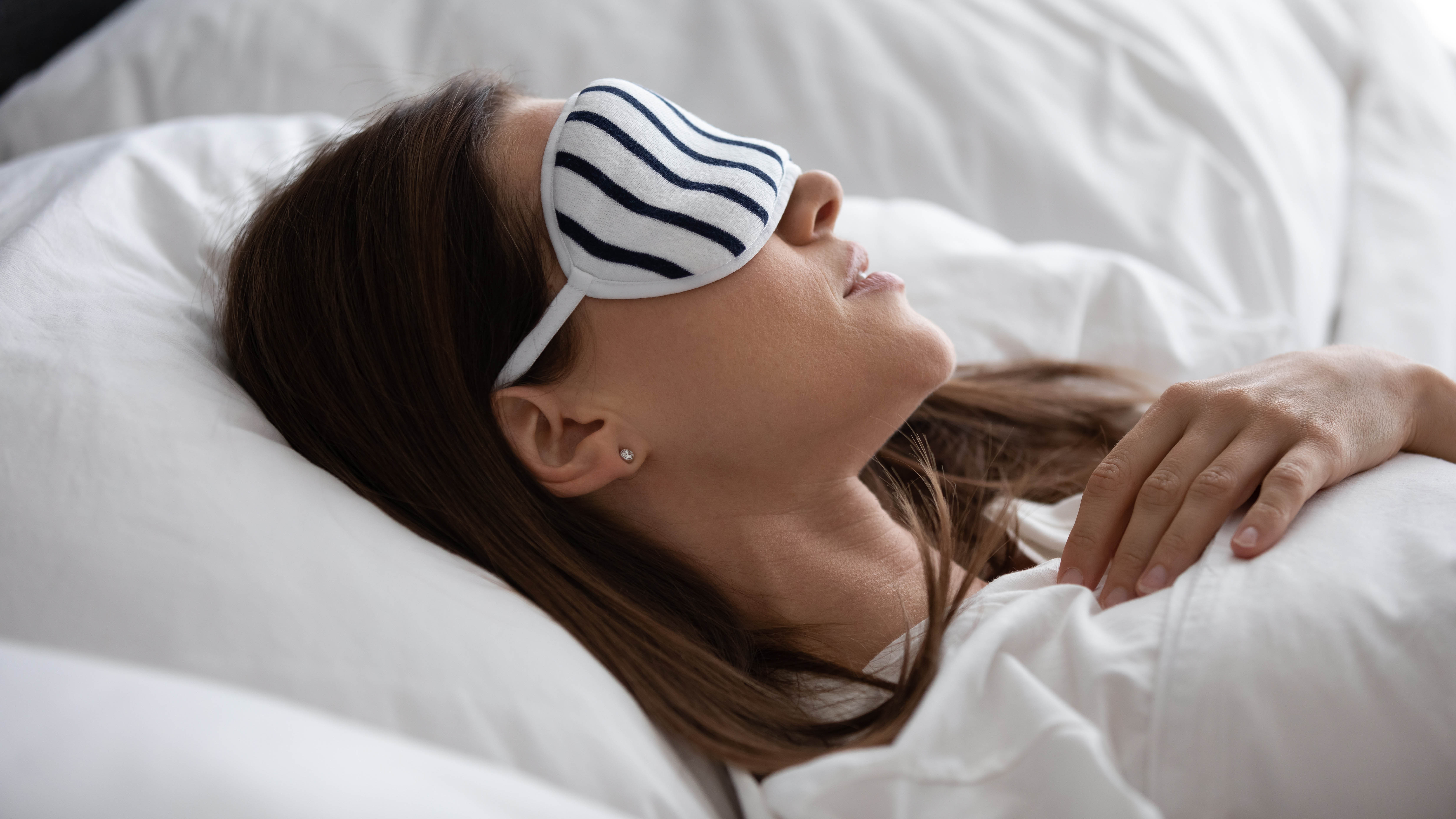
It’s common knowledge that getting enough sleep is important for your overall wellbeing. However, during the winter, when the days are shorter and there’s less access to sunlight, the usual kip you catch might not be enough.
But that’s where an early afternoon nap could help. According to experts, when done properly, napping can help boost your energy, ease stress and improve mood. A power nap could also decrease symptoms of sleep deprivation and enhance your cognitive functioning.
With ‘Blue Monday’ looming, we spoke to sleep experts to find out how napping could be the answer to feeling well-rested this January. So, to discover what causes sleep disruptions in winter and how naps can help you cope, keep reading. We’ve also included some tips on how to master the art of a good nap.
Why do people struggle to sleep in January?
It’s not just the stress of the holiday season, late nights or increase in alcohol consumption that could be causing sleep disruptions. “January can be particularly challenging for sleep due to a mix of physical and psychological factors,” Kelly Murray, certified adult sleep coach explains.
“The shorter, darker days disrupt our exposure to natural light, which is essential for regulating the body’s circadian rhythm. With less sunlight, our cortisol (the alert hormone) and melatonin (the sleepy hormone) production can be thrown off.”
In some instances, a lack of sunlight can lead to seasonal affective disorder (SAD)—which a reported 10 million of us are affected by—or a general drop in motivation, both of which Murray confirms makes it harder to maintain energy and positive sleep hygiene habits.
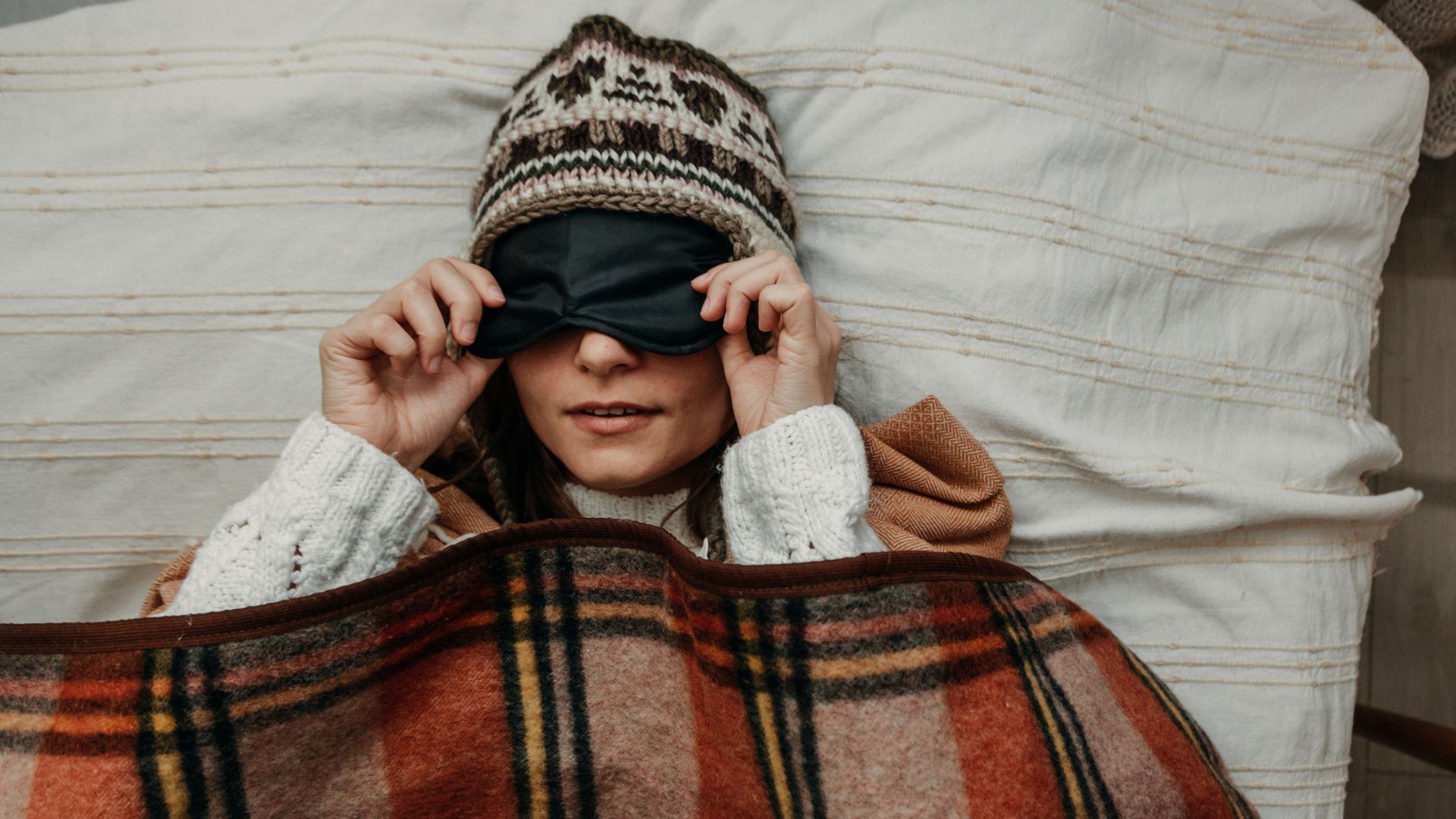
How naps can help you cope in winter
We’ve delved into the research and spoken to sleep experts to find out how napping can help you cope with the January Blues.
Boost your energy levels
It’s no secret why we sleep. Research tells us that hitting the hay plays a ‘crucial role’ in various important life functions, like the state of energy conservation or energy restoration. And napping, when done properly, is no different.
“A well-planned nap can boost your energy levels by reducing sleep pressure, which is the build-up of fatigue throughout the day,” Murray says. “When we take a short nap—ideally around 15-20 minutes—it gives the brain time to recharge without entering the deeper sleep stages that may leave us feeling groggy.”
Boost motivation
Reduced sunlight exposure in winter can also disrupt the production of serotonin (the mood-boosting hormone) which can lead to a drop in motivation levels. But that’s where a midday snooze or power nap steps up to the plate.
“A short nap allows the brain to reset and recharge, which not only boosts alertness but also improves mood and creativity,” Murray explains. “Studies show that well-rested individuals are better able to tackle challenges, process new information, and approach tasks with renewed enthusiasm. In winter, when the ‘January Blues’ can hit hard, a nap may provide the reset you need to regain motivation,” Murray adds.
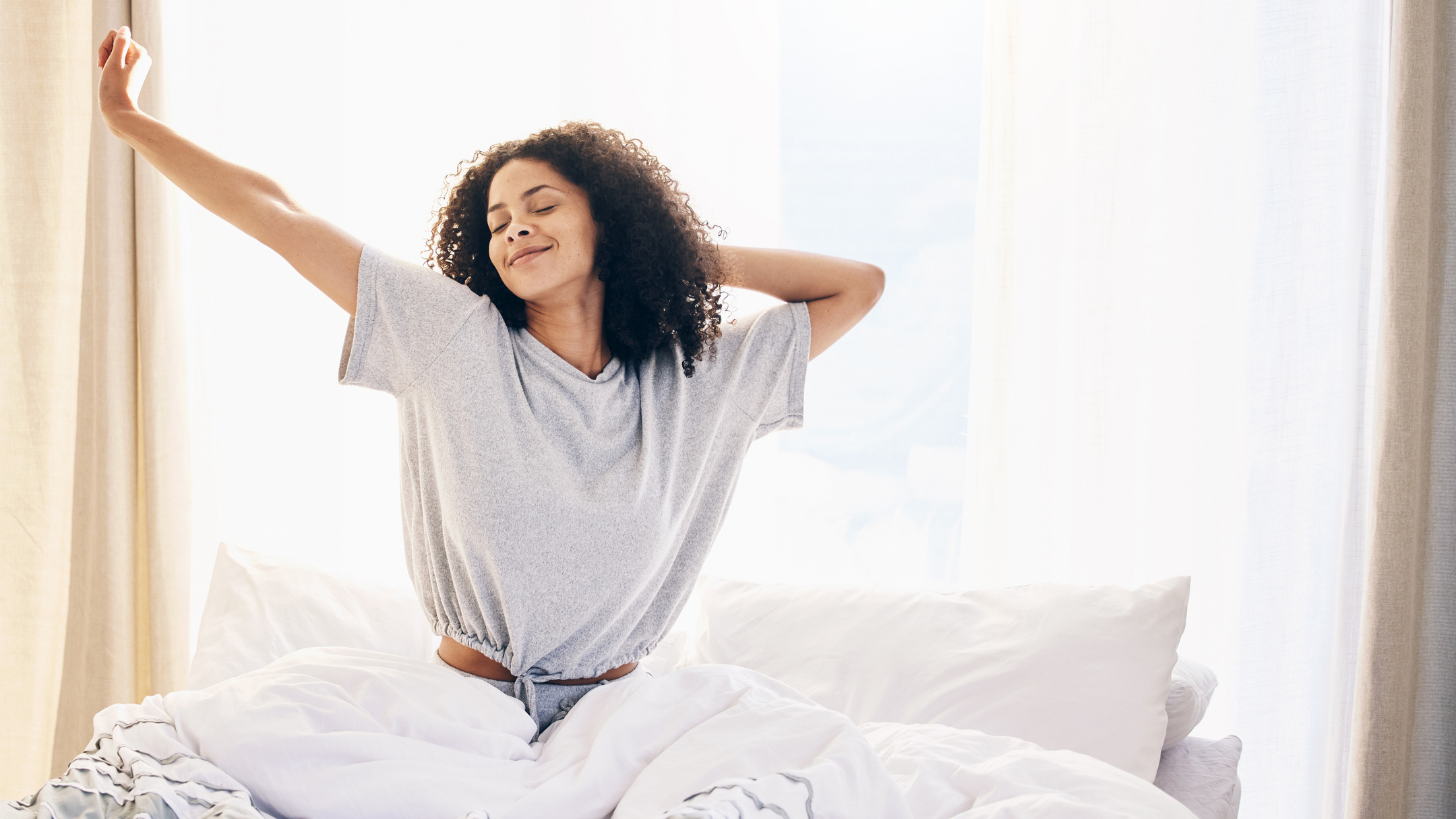
Decrease symptoms of sleep deprivation
Healthy adults generally need around 7 to 9 hours of quality sleep. But, according to research, more than 35 percent of Americans don’t hit this target and experience sleep deprivation.
“While naps are not a substitute for a full night of quality sleep, they can help offset the effects of poor sleep (i.e. brain fog, irritability, and difficulty concentrating),” Murray tells us. “A short nap can restore alertness, improve cognitive performance, and take the edge off daytime fatigue. “
And there’s research to back this up. In the 2018 article, researchers said that a bout of mid-day sleep ‘minimizes sleepiness’ while enhancing executive functioning.
Ease stress levels
According to a 2023 poll, conducted by the American Psychological Association, nearly nine in 10 Americans report feeling some sort of stress during the holiday season.
When stressed, research shows that our sleep quality and quantity can deteriorate. This is due in part to elevations in blood pressure. But there’s research to show that a daytime nap could lower average blood pressure after psychological stress.
Therefore Dr Lindsay Browning, who is a sleep expert at Trouble Sleeping and author of the self-help sleep book Navigating Sleeplessness, confirms that a power nap could ease stress. “A nap gives your brain and body a chance to have a short break and recover ready to handle the rest of the day,” Dr Browning adds.
Enhance your cognitive function
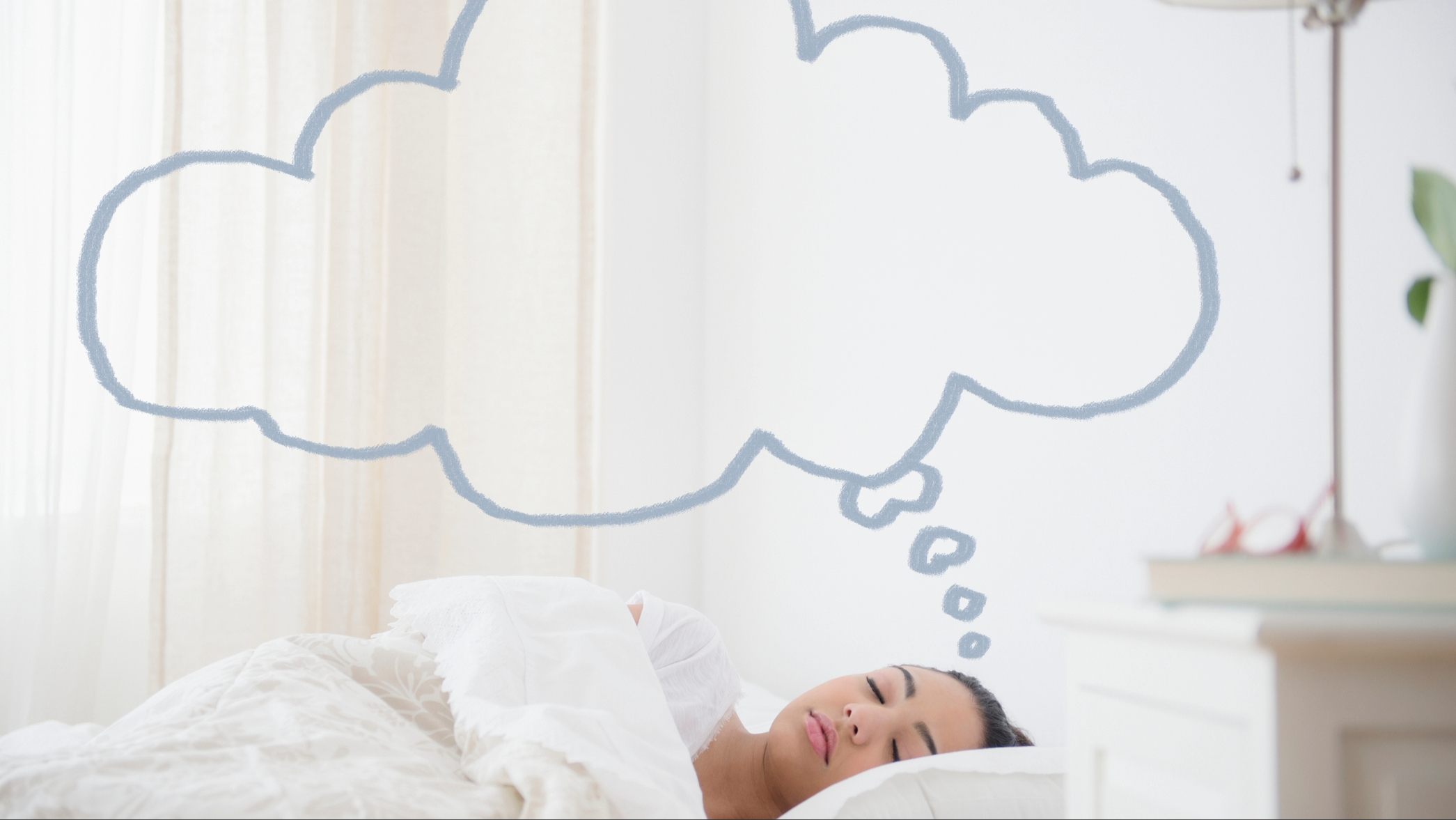
If you’ve ever had difficulty focusing on a task or are suffering from poor short term memory, a short nap could help supercharge your cognitive functioning.
“Napping can help our alertness and our cognitive functioning which can give us a boost to engage in the rest of the day,” says Dr Maja Schaedel, co-founder and director of The Good Sleep Clinic.
And Dr Browning agrees. “When we nap, it can improve alertness and reduce tiredness, as well as help with memory consolidation (learning and memory) and emotional processing.”
How to nap properly
That said, not all naps are created equal. Therefore it’s important to nap ‘properly’ to ensure you’re helping, not hindering, your performance, mood or health.
Set a specific time limit
Napping during winter can be helpful as long as it’s kept to around 20 minutes. “Taking longer naps during the day to make up for a poor night’s sleep can just perpetuate the problem, as it reduces your sleep drive for the following night’s sleep,” Dr Browning says.
The adult sleep cycle lasts around 90 to 110 minutes and has four stages. Stage 1 lasts minutes and is the transitional period between being awake and falling asleep, Stage 2 is the lightest and longest sleep phase, while Stage 3 is where our deepest rest takes place. Rapid eye movement (REM) is the dream sleep stage.
A 20-minute nap might not be enough time to enter Stage 3 or REM sleep. But, as Dr Browning highlights, that’s why short naps are key. “If you nap for too long, you may wake from within the deepest part of sleep leaving you feeling groggy with sleep inertia,” the sleep expert adds.
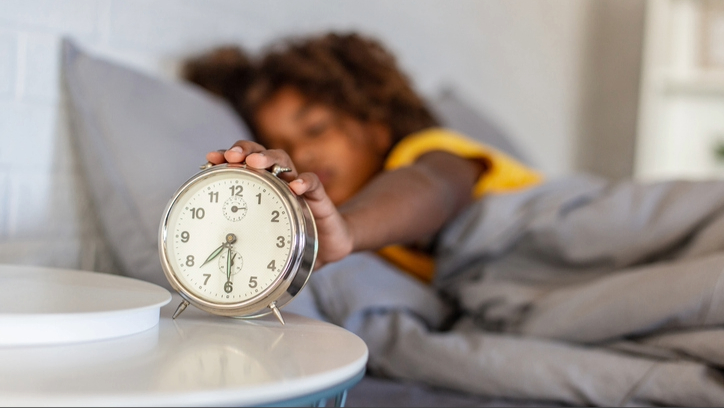
Choose the right time of day
‘A brief 'top up’ nap just after lunch for around 20 minutes can boost your energy levels for the rest of the day,” Dr Browning reiterates. However, napping later in the day can disrupt nighttime sleep and create a ‘cycle of ongoing poor sleep at night’ followed by needing a nap the next day, the expert says.
Therefore, Dr Browning recommends napping early in the afternoon, ideally just after lunch when you’re feeling your energy levels waning. “And try not to sleep any later than 3pm,” she notes.
Choose the right environment
We’re well versed in how blue light from screens makes it harder to fall asleep. So while it can be tempting to nap on the couch in front of a TV, taking yourself off to a dark and cool bedroom, with a temperature of between 60-68°F, is best.
“A dark, quiet room (with blackout blinds or an eye mask) can help you fall asleep more quickly and stay asleep for the short duration of your nap,” Dr Browning says. If outside daytime noise is an issue, consider using earplugs or white noise.”







